“It takes a lot of courage to try and change your life,” so says Charlie (Stephanie Allynne) to her partner, Will (Jemaine Clement). The self-affirmation loses something in context: a year earlier, Will caught Charlie in full-on carnal embrace with Gary (Michael Chernus) in the middle of their twin daughters’ sixth birthday party. What People Places Things goes on to show is that courage actually comes from sorting the good change from the bad and learning to stick with the former.
A year after the birthday fiasco, Will and Charlie have separated. He teaches college courses on the art of the graphic novel and takes the girls on the weekends. But he isn’t dating or making much progress on his own work. He asks Charlie to have more time with the kids. Chance intervenes, and Will gets what he asked for. French lessons are missed and cold pizza serves as breakfast as dad learns he didn’t know how much he didn’t know.
Meanwhile, one of Will’s few promising students, Kat (Jessica Williams), tries to fix him up with her mom, Diane (Regina Hall). Diane doesn’t have an interest in graphic novels—comic books, as she refers to them—but she does have her own set of emotional baggage as a single mom who’s been on the dating scene for years. She also has a fair amount of chemistry with Will, which he finds very exciting, until Charlie admits she still has feelings for him.
Clement is laugh-out-loud funny as Will awkwardly tries to balance all this. Some of his lines are flat, but his deadpan delivery makes them winners. Allynne and Chernus are standouts as out-of-touch Brooklyn hipsters: she’s really into her improv class, and he’s “an off-Broadway monologist.” Regina Hall doesn’t quite match Clement in tone (it may be that her character isn’t as well written), but there are moments when their rapport makes sense.
One of the concepts Will teaches his students is what he calls closure. This is the space between two panels of a comic, and it gives the artist the power of the reader’s imagination. If you have a panel that reads “I am depressed,” he says, and put it next to a panel of a man who is smiling, the reader will automatically link these two concepts and infer that the man is sad even though he is smiling.
Therefore, there are many exciting possibilities when it comes to closing one panel and opening another. Will is at a moment of closure in his life. The question is, what will he take with him into the new panel and what will he leave behind? At its conclusion, the film does veer dangerously close to the treacly, but Clement is always engaging, and Will works hard enough for a happy ending to deserve one.

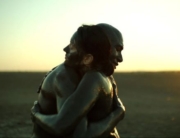
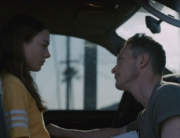
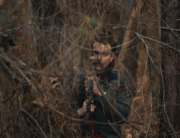
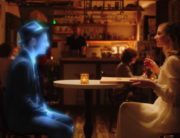
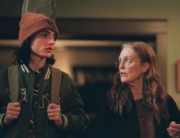
Leave A Comment